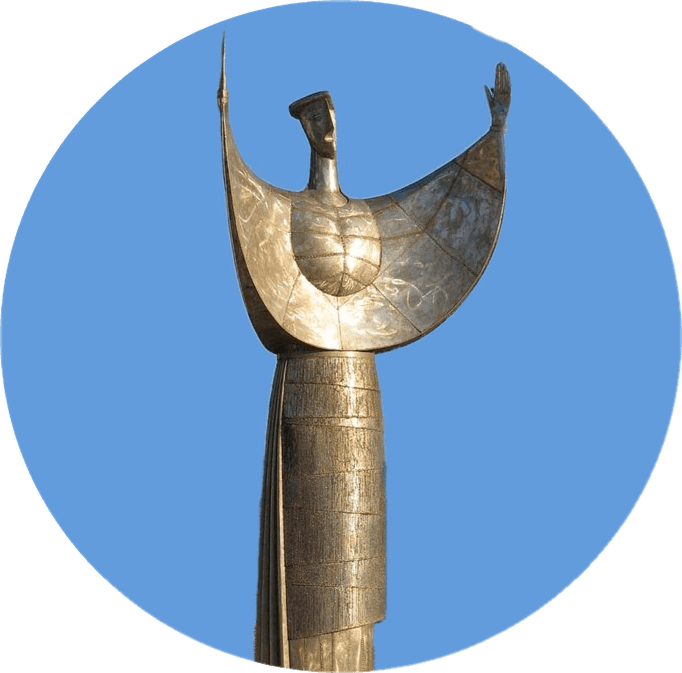Oakland University
THA 4082 Classical Theatre in Greece Accompanying Professors: Jeremy Barnett and Lynnae Lehfeldt3 - 26 June, 2024
3 - 26 June, 2024
The program brings interested students to the birthplace of western theatre.
This description and text is written by the Oakland University professors who accompany the students:
Study, rehearse and present a classical play surrounded by the same mountains that informed the playwrights. Grow as a theatre artist, walk the paths of Agamemnon, visit the Oracle and, yes, enjoy the beaches.
We live, study, and rehearse in Hydra and eat at a taverna near the beach—all meals are included. Wifi is available at the taverna and there is plenty of time for swimming and enjoying the nightlife on the island.
The Classic Theatre Study in Greece program lives on Hydra for just over two weeks, providing a leisurely introduction to the culture, and culminating in a performance at the island’s amphitheater.
You study with Oakland faculty and guest artists, and rehearse. The opening night of the play on the island is a glorious celebration of theatre, well attended by Hydriot and international theatre-goers. And when we depart, it’s only to discover even more of Greece!
What you will do:
On the Island of Hydra
While we explore the ancient plays and theatrical style of Classical Theatre, we have classes/rehearsals 6 days a week. Sunday daytime is off. Sometimes our evenings are taken up by seeing performances or going to festivals. Morning sessions are 3 – 4 hours followed by lunch, evening sessions about 2 – 3 hours followed by dinner. Ah, it sounds busy… but this Greece, and when in Greece there is siesta! So, although the schedule is full, there is regulated time every day for quiet and rest.
Most of our students take their siestas on a chair, under an umbrella at our beach—the loveliest on the island. So, there is ample time for reading, learning lines, writing in journals, shopping, eating ice cream, and even sleeping in the afternoon. After dinner there’s time for a walk or boat ride into town to enjoy the night life at the clubs or to count the yachts from all over the world that nestle in the harbor, while eating a chocolate crepe!
Traveling
Once on tour, there is much to do and see. Whether reciting an ode in Epidaurus, climbing the 999 steps to the Palamidi Castle, sitting in the carved seats of the Ancient Theatre of Argos, or entering the dark well in Mycenae, we squeeze in time to rest. But, you don’t want to miss drinking from Delphi’s Fountain of Inspiration or seeing the Caryatids up close and personal in the Acropolis Museum!
In Athens, the winding streets of the Plaka and all its wares lure even the frugal traveler with something for everybody. All of our students return home from Athens, enriched, and changed. Some choose to stay behind in Europe and travel by air or rail to Rome, Venice, Barcelona, Paris, or London.
Our program is designed to immerse students in Classical Greek theatre in the home of its birth. Past participants have been interested in acting, design, mask work, choreography, mythology, history, and photography. The central play is selected after the placement auditions or interviews are completed in order to reflect and support the course’s upcoming students.
On the island there are lectures, hands-on classes, and workshops with guest artists as well as the primary Oakland faculty. A daily combination of rehearsal and/or studio time is also part of the curriculum until opening night and all students contribute to the event. English is the language of instruction and performance. Most of the people in Greece speak English.
Leaving Hydra, we then tour ancient theatres, archeological sites, and museums (Epidaurus, Argos, Mycenae, Delphi, Corinth) on our way to Athens where we will tour the Acropolis and its magnificent museum with plenty of time for sipping frappés and shopping in the Plaka.
What to expect:
• A 3½ -week, four-credit course of study in Classical Theatre, Greek Culture, History of Theatre, Acting, Mask, Choral Movement supplemented by visits to archeological sites and museums.
• Course taught by Oakland faculty with additional workshops with guest artists incorporating local resources (ancient theatres, archeological sites, museums, performances and field trips)..
• Planned excursions to Ancient Theatre of Epidaurus (usually attend a performance there), Nafplion, Ancient Theatre of Argos, Mycenae, Corinth, Delphi and our studies culminate in a tour of the Acropolis and a visit to the magnificent new Acropolis Museum.
An audition/interview is required, conducted early winter semester prior. Students must complete the application forms and enroll in the course (THA 4082) for credit. They should have completed at least one year of college.
This 4-credit course satisfies the university general education requirement for the capstone experience for Theatre major.
